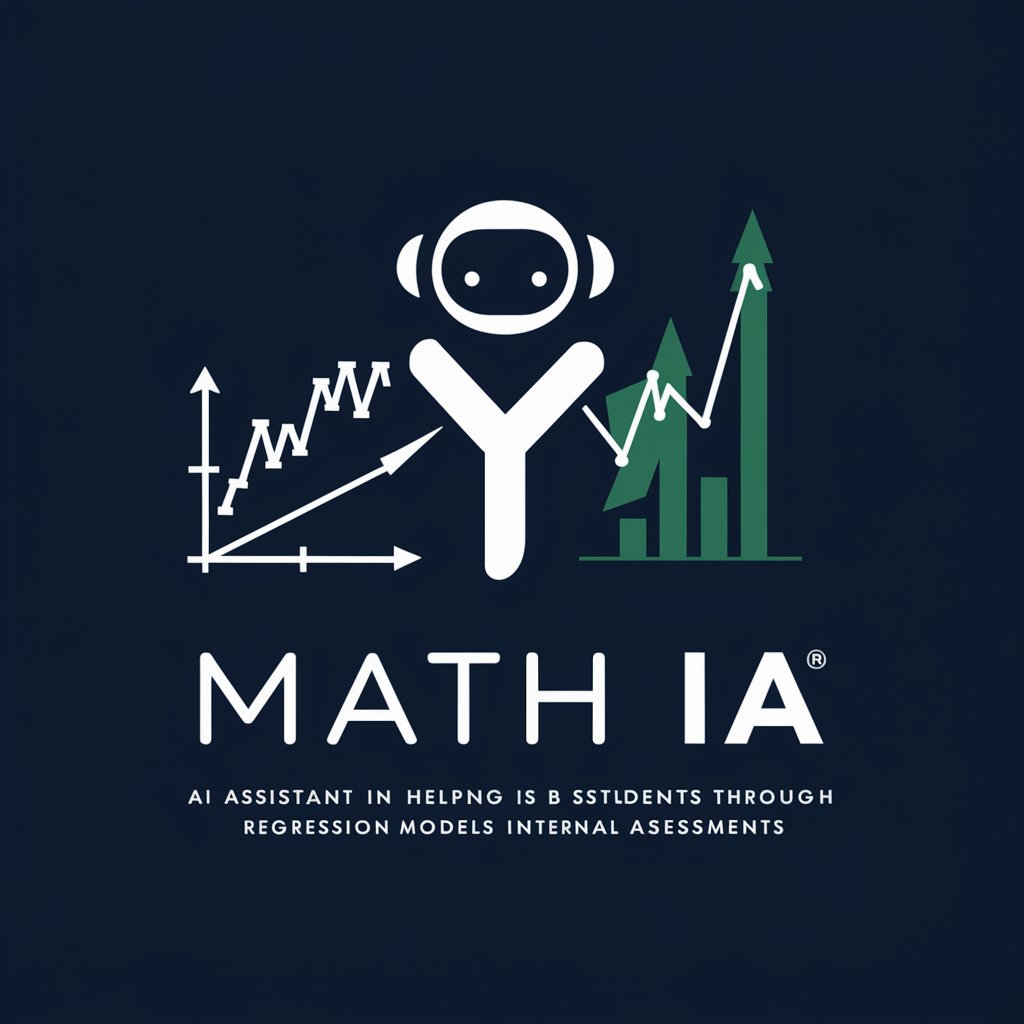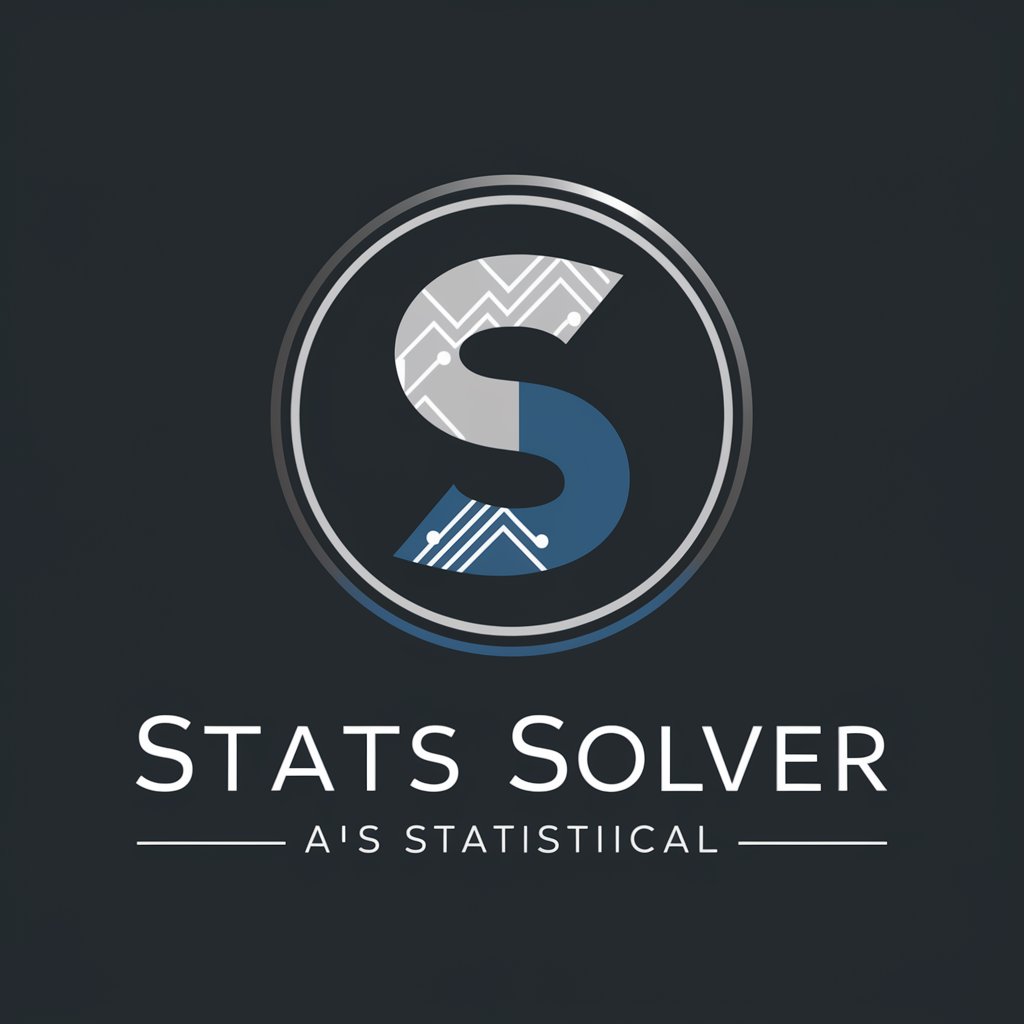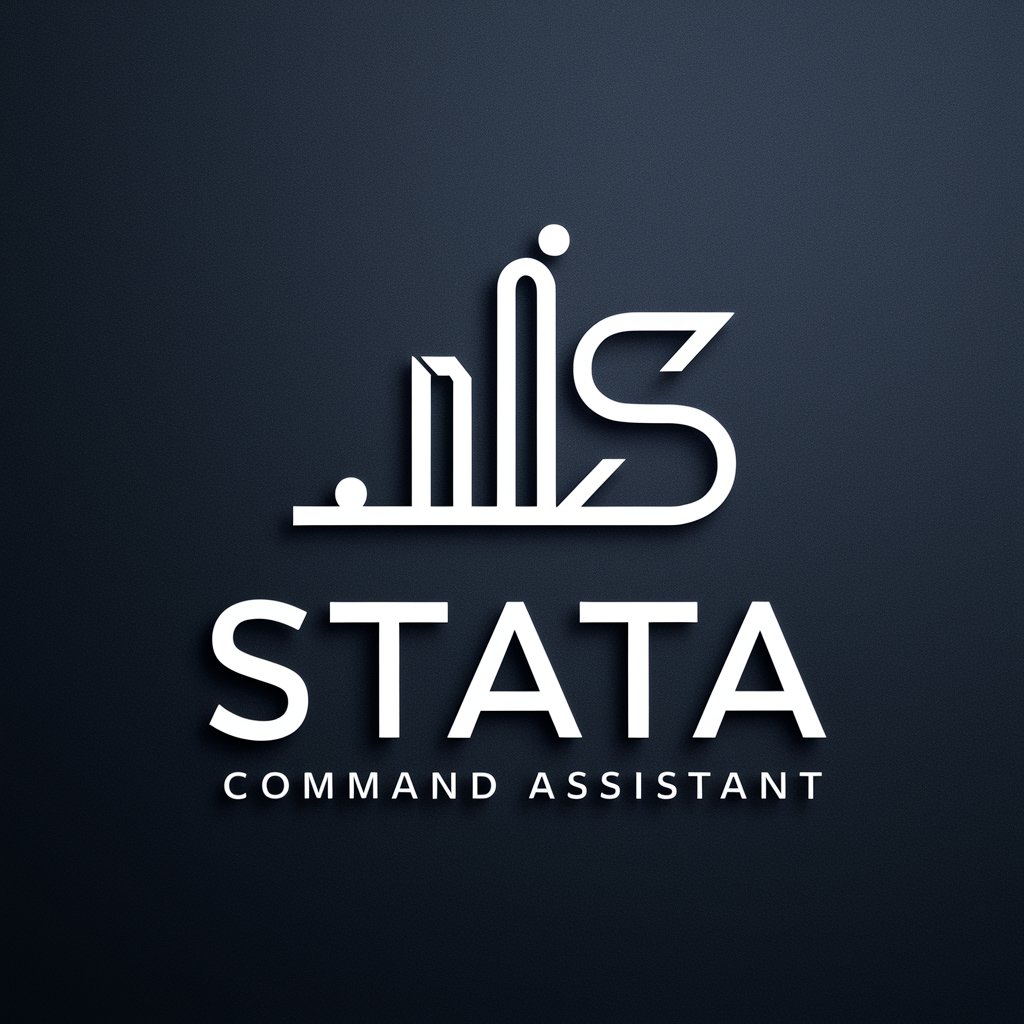6 GPTs for Regression Analysis Powered by AI for Free of 2026
AI GPTs designed for Regression Analysis are advanced machine learning models, specifically Generative Pre-trained Transformers, tailored for analyzing and interpreting complex data sets to predict outcomes. These tools leverage the power of AI to process and model data effectively, making them highly relevant for tasks that require predictive analysis. By utilizing these GPTs, users can perform sophisticated regression analysis, identifying patterns and relationships within data that are not immediately apparent. The role of GPTs in providing customized solutions in this field underscores their importance, enabling precise and accurate predictions that support decision-making processes.
Top 6 GPTs for Regression Analysis are: Stata Analyst,Econometric Analyst,Math IA,Advanced Econometrics - PhD & MSc Tutor,Stats Solver,Stata Command Assistant
Stata Analyst
AI-powered Stata code generation made simple

Econometric Analyst
AI-powered econometric analysis and insights.

Math IA
AI-powered tool for comprehensive math assessments

Advanced Econometrics - PhD & MSc Tutor
AI-Powered Insights for Econometric Mastery

Stats Solver
Empowering Statistics with AI

Stata Command Assistant
Empowering your data analysis with AI

Key Attributes and Functionalities
AI GPTs for Regression Analysis boast several unique characteristics and capabilities, setting them apart in data science and analytics. These include adaptability to various regression models (linear, logistic, polynomial, etc.), automated data preprocessing, feature selection, and the ability to handle large datasets with complex variables. Special features may also encompass language understanding for processing and interpreting textual data inputs, technical support for troubleshooting and optimization, and advanced data analysis tools for deeper insights. Their ability to learn and improve over time ensures that they remain at the forefront of predictive analytics technology.
Who Benefits from Regression Analysis GPTs
AI GPTs for Regression Analysis are designed to cater to a wide range of users, from novices in data science to experienced developers and analytics professionals. These tools are particularly beneficial for individuals without coding skills, thanks to their user-friendly interfaces, as well as for those with programming expertise seeking advanced customization options. Educational institutions, research organizations, and industries relying on predictive modeling, such as finance, healthcare, and retail, will find these GPTs invaluable for their analytical needs.
Try Our other AI GPTs tools for Free
THC Calculation
Discover the precision of AI GPTs for THC Calculation, your go-to solution for accurate cannabis content analysis and regulatory compliance.
Edible Recipes
Discover how AI GPTs for Edible Recipes can transform your culinary experience with tailored recipe suggestions, dietary adaptations, and creative inspiration.
Safe Consumption
Explore AI GPTs for Safe Consumption: Tailored AI tools designed to enhance safety in consumption with personalized advice, risk assessments, and educational content for everyone.
Spend Optimization
Discover how AI GPTs for Spend Optimization can transform your financial management with advanced analytics, forecasting, and cost-saving insights.
Performance Audit
Explore how AI GPTs revolutionize Performance Audits with advanced data analysis, predictive insights, and user-friendly interfaces for professionals and novices alike.
Rank Tracking
Unlock the full potential of your website with AI GPTs for Rank Tracking. Harness the power of AI to monitor rankings, analyze competitors, and optimize your SEO strategy for maximum visibility.
Expanding Horizons with GPTs
AI GPTs for Regression Analysis redefine how data is analyzed across sectors, offering user-friendly solutions that enhance accuracy and efficiency. The ability to integrate these tools with existing systems broadens their applicability, ensuring that they can be adopted in diverse contexts. Their evolving nature means that they continuously adapt to new challenges, making them an indispensable asset in the toolkit of data scientists and analysts.
Frequently Asked Questions
What exactly is Regression Analysis in AI GPTs?
Regression Analysis in AI GPTs refers to the application of Generative Pre-trained Transformers in predicting outcomes based on data analysis. These tools use machine learning to identify relationships between variables, making them ideal for forecasting and decision-making.
Can AI GPTs handle multiple forms of regression analysis?
Yes, AI GPTs are capable of handling various forms of regression analysis, including linear, logistic, and polynomial regressions, among others. They adapt to the complexity of the data and analysis required.
Are these tools suitable for beginners in data science?
Absolutely, AI GPTs for Regression Analysis are designed with user-friendly interfaces that make them accessible to beginners, providing a gentle introduction to complex data analysis concepts.
How do AI GPTs enhance data preprocessing?
AI GPTs automate the tedious process of data preprocessing, including cleaning, normalization, and feature selection, thereby enhancing the efficiency and accuracy of the analysis.
Can these tools integrate with existing data analysis workflows?
Yes, AI GPTs are designed to be flexible and can easily integrate with existing data analysis workflows, allowing for seamless incorporation into various projects.
Do AI GPTs for Regression Analysis require programming knowledge?
While having programming knowledge can enhance the user experience, it is not a prerequisite. These tools offer intuitive interfaces that guide users through the analysis process without the need for extensive coding skills.
How do these tools handle large datasets?
AI GPTs are built to efficiently process and analyze large datasets, utilizing advanced algorithms and computing power to manage complex variables and relationships within the data.
What industries can benefit from using AI GPTs for Regression Analysis?
Industries such as finance, healthcare, retail, and more can benefit from using AI GPTs for Regression Analysis. They offer predictive insights that are crucial for strategic planning and decision-making.